Stiff person syndrome
Stiff person syndrome SPS is a rare autoimmune neurological disorder. Spasms can generate enough force to fracture bone.
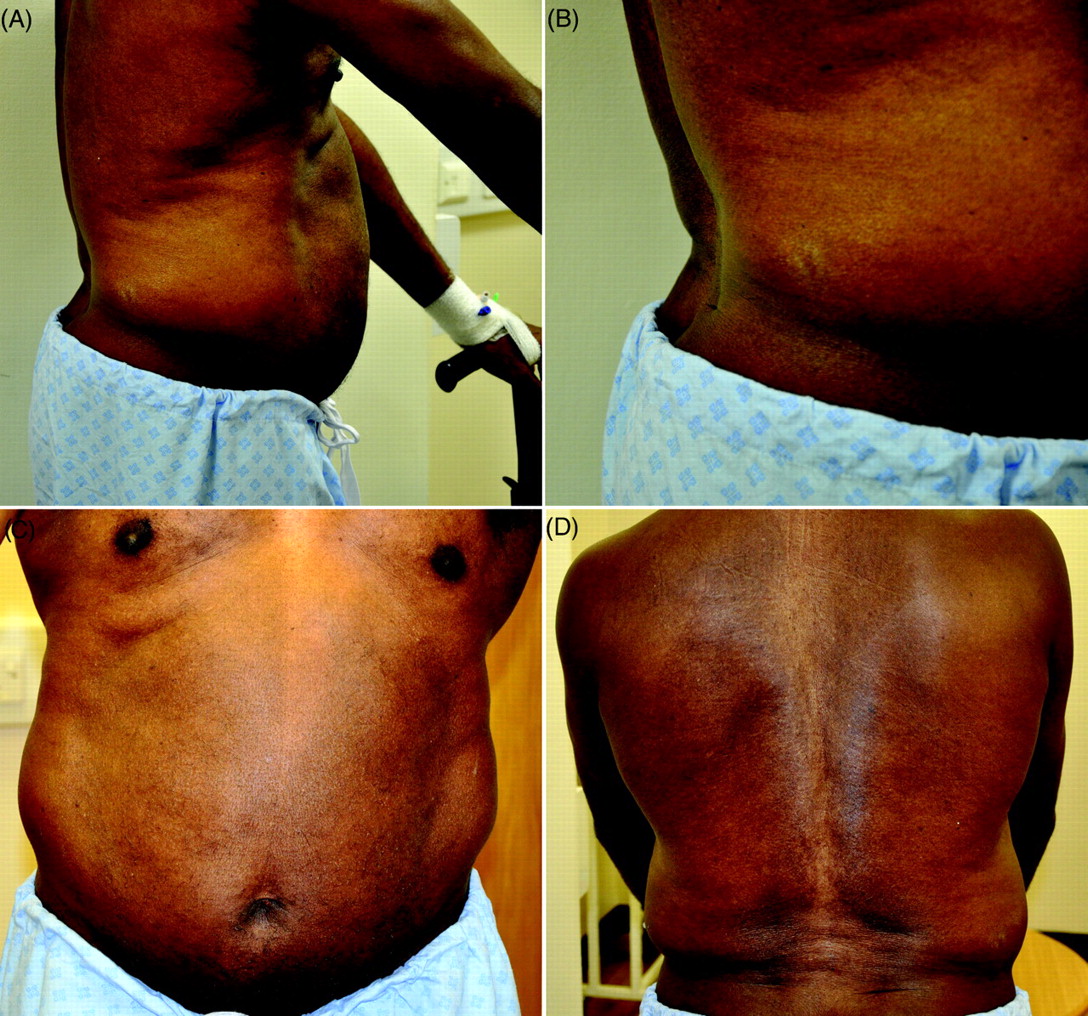
Stiff Person Syndrome Practical Neurology
But more people are affected than reported due to misdiagnoses.

. Stiff person syndrome SPS is a neurological disease with autoimmune features. Learn more about the treatment and outlook for the condition here. The stiffness primarily affects the truncal muscles and is superimposed by spasms resulting in postural deformities.
Muscle spasms can be so violent they can dislocate joints and even break bones. Chronic pain impaired mobility and lumbar hyperlordosis are common symptoms. Symptoms include muscle spasms hyper-rigidity debilitating pain and chronic anxiety.
Stiff person syndrome SPS is a rare progressive syndrome that affects the nervous system specifically the brain and spinal cord. The cause of this extremely rare disease is still unknown. Symptoms include muscle spasms and rigidity.
Certain cancers including breast lung kidney thyroid colon and Hodgkins lymphoma. Tests for diagnosing stiff person syndrome may include the following. Stiff-person syndrome SPS is a rare and disabling central nervous system disorder with no satisfactory treatment.
SPS is labeled as a rare disease. Stiff-person syndrome SPS is a rare acquired neurological disorder characterized by progressive muscle stiffness rigidity and repeated episodes of painful muscle spasms. Stiff-person syndrome also known as stiff-man syndrome is a rare neurologic disorder of unclear cause characterized by progressive rigidity and stiffness.
Symptoms may include extreme muscle stiffness rigidity and painful spasms in the trunk and limbs severely impairing mobility. A small minority of patients have. SPS occurs in about one in a million people and is most commonly found in middle-aged people.
Muscular rigidity often fluctuates ie grows worse and then improves and usually occurs along with the muscle spasms. Serum anti-GAD glutamic acid decarboxylase 65 antibody serum amphiphysin antibody several other serum autoantibodies hemoglobin A1c and vitamin levels lumbar puncture MRI of the brain and spine neurophysiological studies. Muscle rigidity sporadic muscle spasms and chronic muscle pain characterize SPS.
Stiff person syndrome is more likely seen in people with certain types of diseases including. SPS is strongly correlated with autoimmune diseases and it is usual to find high titers of antibodies against acid decarboxylase GAD65. Stiff Person Syndrome SPS is an autoimmune and neurological disorder that can make the muscles in the torso and limbs alternate between rigidity and spasms.
Stiff-person syndrome SPS is a rare neurological disorder with features of an autoimmune disease. SPS is characterized by fluctuating muscle rigidity in the trunk and limbs and a heightened sensitivity to stimuli such as noise touch and emotional distress which can set off muscle spasms. Abnormal postures often hunched.
Autoimmune disorders including diabetes thyroiditis vitiligo and pernicious anemia.

Stiff Person Syndrome A Diagnostic And Management Challenge Semantic Scholar

Stiff Person Syndrome

Stiff Person Syndrome Youtube

6nal9zswvhcopm

Stiff Person Syndrome
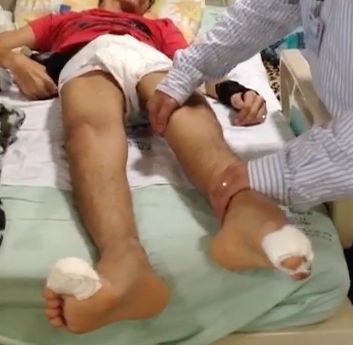
Stiff Person Syndrome Case Series Mds Abstracts

Autologous Hematopoietic Stem Cell Transplantation For Stiff Person Spectrum Disorder Neurology
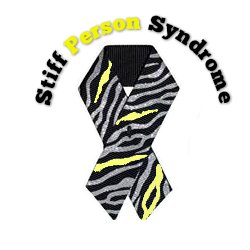
Stiff Person Syndrome Thetinman Org Twitter
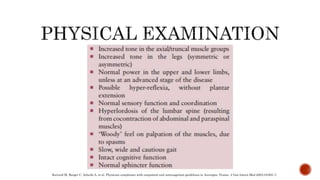
Stiff Person Syndrome

Hdlors4cvgefbm

Stiff Person Syndrome Practical Neurology

Pdf Physical Therapist Management Of Stiff Person Syndrome In A 24 Year Old Woman Semantic Scholar

Mhiir On Twitter Stiff Person Syndrome Common Symptoms Stiffpersonsyndrome Sps Stiffpersonsyndromeawareness Spsawareness Commonsymptoms Raredisease Autoimmune Autoimmunedisease Autoimmunedisorder Chronicpain Chronicillness

Frozen Alone Unable To Move Stiff Person Syndrome Patients Rising
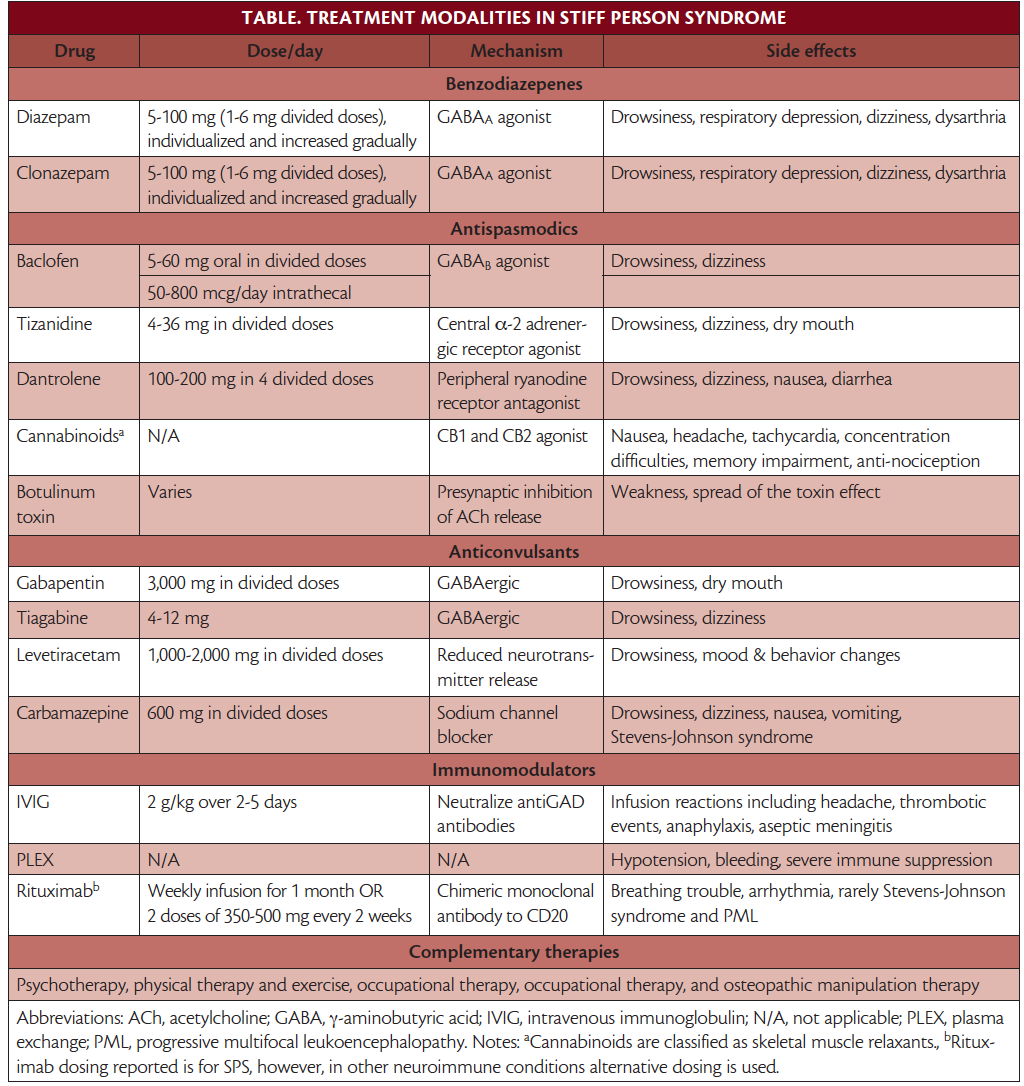
Stiff Person Syndrome Practical Neurology

Stiff Person Syndrome With Evidence Of Nonspecific Focal Myositis Secondary To Sustained Muscle Contraction A Case Report Sciencedirect

Stiff Person Syndrome